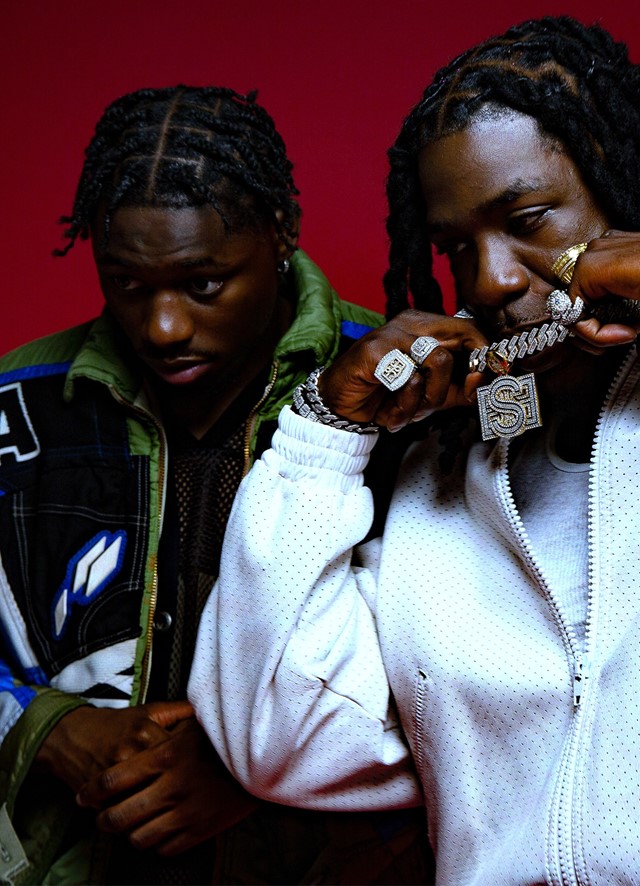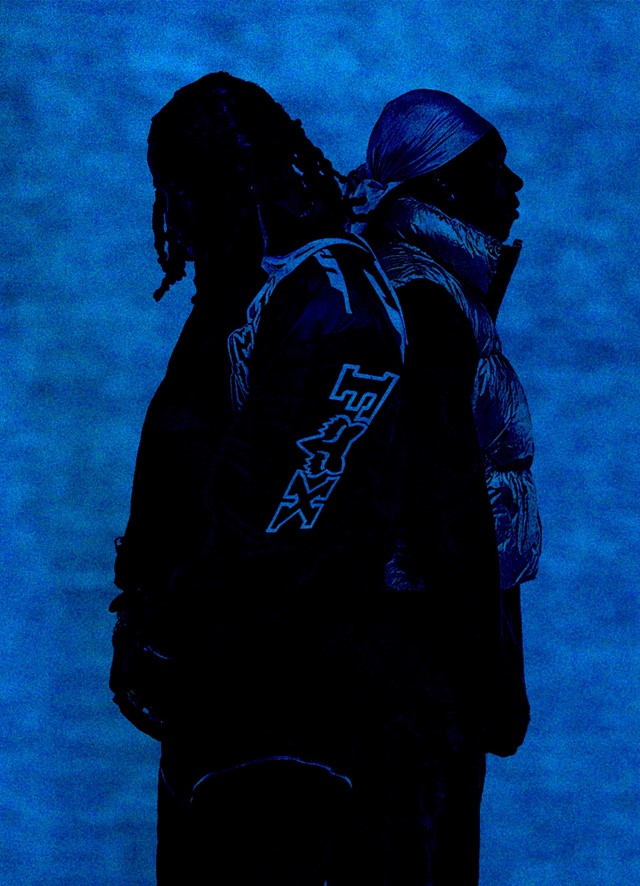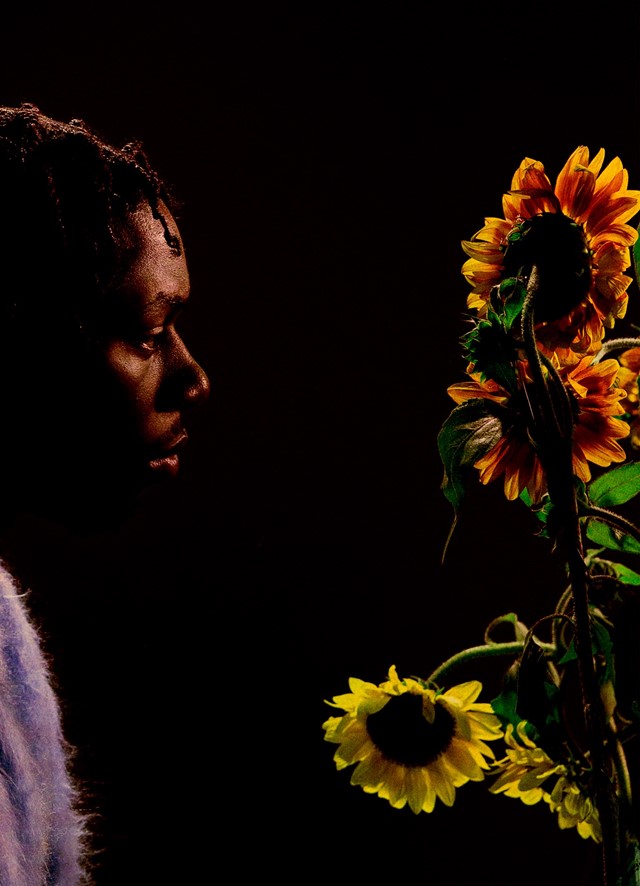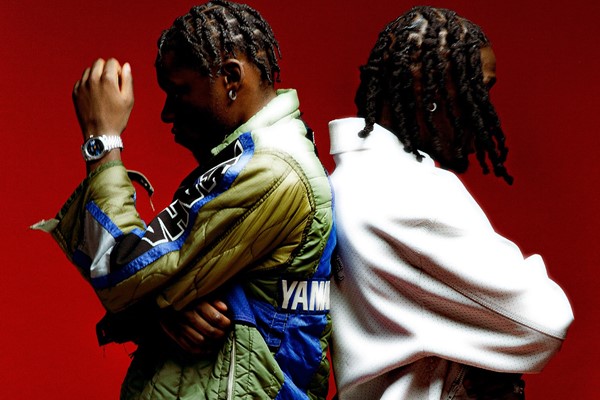Following the release of their new album La Mélo est Gangx, the prominent duo discuss growing up in France, navigating French hip-hop and their new project ‘La Mélo est Gangx’
Since the late 70s, hip-hop in France has been on a steady ascent. While sonically there are clear influences from mainstream American rap, the prominence of African and Caribbean cultures in France has historically played a part in creating the fusion that is associated with both contemporary and heritage French hip-hop artists. Today, artists such as Gazo and Tiakola are at the forefront of a new generation of French rappers creating a rich tapestry of sound by embracing the layers of their heritage.
Born Ibrahima Diakité to a Guinean family in Châteauroux, France, Gazo began rapping under the name ‘Bramsou’ in underground drill scenes at just 15. Despite starting his career over a decade ago, it was his mixtape Drill FR, released in 2019 that led to him getting signed by Epic Records France and consequently earning his place among France’s most exciting new artists.
Five years Gazo’s junior, Tiakola had a similar trajectory into the music industry. Raised in the suburbs of Paris as the youngest of eight siblings, as a teenager Tiakola joined the rap group 4Keus. In 2019, he left the group and began his solo career, going on to release his album Mélo in 2022 and collaborating with artists such as British rapper Dave.
Released this month, La Mélo est Gangx is a 12-track album, marking Gazo and Tiakola’s first official album together. Blending ‘mélo’, an emerging genre in France highly inspired by melodic trap music, with elements of drill music and Afrobeats, the album is a fusion of both their styles. Honouring their Congolese and Guinean backgrounds, the album details experiences growing up in the suburbs of Paris, life and survival.
Below, Gazo and Tiakola speak to us about their first time meeting, key influences and the rise of French rap on the global scale.
What are your earliest memories of music?
Tiakola: At home, my parents listened to traditional Congolese music. My big brothers listened to rap while my sisters listened to R&B. There was something for everyone really.
Gazo: Me too. There was a lot of music at home growing up but it was the music videos, messages and lifestyles of American rap in the 2000s that fascinated me.

You both come from African families, which artists did you listen to growing up?
Tiakola: All traditional Congolese music, such as Koff and Werrason but also a lot of rap and R&B. I am the last of 8 children so I listened to a bit of everything.
Gazo: In Paris, we listened to a lot of Rohff. Growing up, a lot of our generation were mostly into US rap.
How did you both first meet?
Gazo: We used to go to the same studio when we were younger, we all met there. We were practically sleeping at the studio.
Tiakola: We both went to do sessions and spoke. We had people in common at the time and we were even signed to the same label! When I was 15 or 16, we had featured on a song together. Gazo was called Bramsou at the time. This friendship was not born yesterday.
What were your main inspirations for the mixtape?
Gazo: We already inspire each other a lot. We are both looking for musicality with new colours. We also travelled a little bit for this project.
Tiakola: We recorded and mixed a part in London, which also inspired us to gain different inspiration by working with British artists for example. Having other influences nourishes us.
You’ve worked together in the past, but what inspired you to collaborate on an album this time?
Tiakola: It happened quite naturally as we are often in the studio together. At first, we talked about it but not seriously, and then gradually we thought it would be a good idea and something we’d actually enjoy.
Gazo: It also was the right time as we both had successful projects that came out over a year ago. It felt like perfect timing to release a special project like that and the public was also asking for it. Above all, we did this to have fun and advance rap in France. Collaborative projects like this, help music move forward.
[embedded content]
Why did you name the album La Mélo est Gangx?
Tiakola: It’s a play on words: Gazo says all the time ‘la mala est gangX’ and in an interview a long time ago we said while laughing about our song ‘Kassav’, ‘the Melo is GANGX’. We kept it in the back of our head and when choosing a title we immediately thought about it.
Gazo: It is our universes that merge, Gazo and Tiako become one.
Your music often combines various genres like rap and drill with melodic elements. How do you navigate this fusion, and what influences your eclectic style?
Gazo & Tiakola: This is what makes the strength of the project and even our respective projects, we do not lock ourselves in a style and we do not get bored.
Gazo: Tiako is the strongest in France today in mélo. He knows how to do everything, melancholy, joy – he’s easily at the top.
Tiakola: Gazo is a hard worker, to my knowledge he is one of the artists who works the most. We find ourselves on top. He brought drill music to France but in reality, he also knows how to do everything. It’s all our influences that merge when we’re together in the studio.

How do you define your own musical genre?
Tiako: I make mélo; but music in the broad sense. I don’t give myself labels because I give myself no limits either.
Gazo: My style is not easy to define. I started with a drill style but I quickly moved into different styles.
Who would you like to work with and who you haven’t worked with yet?
Gazo: We have no limits and we do not box ourselves in. After all, we are one the artists who have done the most features this year in France. We like to share too much, so as long as it is to work with someone to make good music we will do it.
If you could suggest three other French artists for someone who is listening to French rap for the first time, who would it be?
Gazo: Mister You or Rohff to discover the old French rap and The Mélo est Gangx for new.
Tiakola: Sefyu, Rsko, Niska and Nessbeal. There are so many people across multiple generations.

French hip-hop has become more popular internationally. What differentiates it from rap around the world and how do you see the future of French hip-hop and drill music?
Tiakola: Everything is faster now with social media and music translates more easily with streaming too. We have always had a big audience here in France so we are not surprised that it has started to travel across the world. We have nothing to envy elsewhere, there are many talents here in France. We do not copy the Americans. We have had a real hip-hop culture for more than 20 years and that is what surely differentiates us.
What do you hope people take away from your music?
Gazo & Tiakola: Creativity.
If you had to share a message to the world through your music, what would it be?
Gazo & Tiakola: It’s very complicated but we try to speak about our reality in the hopes that maybe young people who see themselves in us can know that they push through everything by working a lot, believing in themselves and going hard for their passions. That alone would be a good message.
This interview has been translated and edited for clarity.
This post was originally published on this site be sure to check out more of their content.







